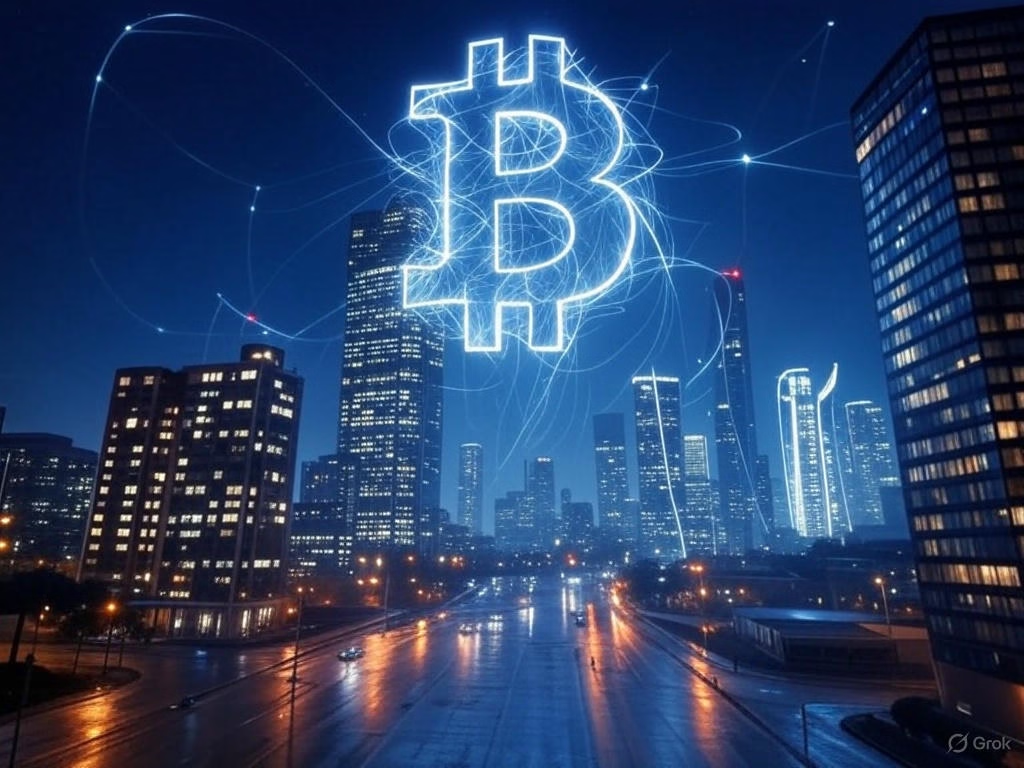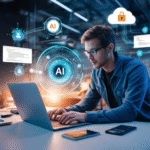Introduction
Imagine a world where money flows freely without banks and artificial intelligence (AI) powers systems no government can control. This isn’t science fiction—it’s the reality unfolding today as Bitcoin and AI collide to redefine decentralization. In this article, we’ll explore how these two revolutionary forces are merging, their impact on finance, technology, and society, and why this fusion could shape the future of our digital world.

What Is Decentralization, and Why Does It Matter?
Decentralization is the shift away from centralized control—like banks or governments—toward systems where power is distributed among individuals. Bitcoin pioneered this movement with its blockchain technology, while AI is now amplifying its potential. Together, they’re creating a seismic shift that’s impossible to ignore.
The Birth of Bitcoin: A Decentralized Dream
Launched in 2009 by the mysterious Satoshi Nakamoto, Bitcoin introduced a peer-to-peer digital currency that operates without intermediaries. Its blockchain—a tamper-proof ledger—ensures transparency and security. Today, Bitcoin’s market cap exceeds $1 trillion, proving decentralization isn’t just a theory—it’s a global phenomenon.
AI Enters the Scene
Artificial intelligence, with its ability to process vast datasets and make autonomous decisions, is the perfect partner for Bitcoin’s decentralized ethos. From optimizing crypto mining to securing networks, AI is turbocharging this revolution.
How Bitcoin and AI Are Joining Forces
The synergy between Bitcoin and AI isn’t just theoretical—it’s already happening. Here’s how these technologies are intertwining:
- Smarter Crypto Trading: AI algorithms analyze market trends in real-time, helping traders maximize profits. Platforms like Binance integrate AI tools to predict Bitcoin price movements with startling accuracy.
- Enhanced Security: AI detects fraud and strengthens blockchain encryption, making decentralized systems harder to hack.
- Efficient Mining: AI optimizes energy use in Bitcoin mining, addressing environmental concerns while boosting output.
- Decentralized AI Networks: Projects like Fetch.ai combine blockchain with AI to create autonomous, trustless systems for data sharing and computation.
This fusion isn’t without challenges—energy consumption and regulatory hurdles loom large—but the potential is undeniable.
The Impact on Society: Freedom or Chaos?
The rise of Bitcoin and AI promises both liberation and disruption. Let’s break it down:
The Upsides
- Financial Inclusion: Over 1.7 billion people lack bank accounts, but Bitcoin offers them a way in—especially when paired with AI-driven mobile apps.
- Privacy Boost: Decentralized systems reduce reliance on Big Tech and governments, giving users control over their data.
- Innovation Unleashed: Developers are building decentralized apps (dApps) that rival centralized giants like Amazon or Google.
The Risks
- Volatility: Bitcoin’s price swings—like its climb to $69,000 in 2021 and subsequent dips—scare off mainstream adoption.
- Crime Concerns: Decentralization can shield illicit activities, though AI is helping law enforcement track crypto misuse.
- Regulatory Pushback: Governments fear losing control, with nations like China banning crypto outright.
Real-World Examples of Bitcoin and AI in Action
The marriage of Bitcoin and AI is already bearing fruit. Here are some standout cases:
- SingularityNET: This platform uses blockchain to democratize AI development, letting anyone access cutting-edge tools.
- Bitmain’s AI Mining Chips: The crypto mining giant now uses AI to make its hardware smarter and greener.
- El Salvador’s Bitcoin Experiment: In 2021, El Salvador adopted Bitcoin as legal tender, with AI-powered wallets simplifying transactions for citizens.
These examples show how decentralization is moving from fringe to mainstream.
The Future: What’s Next for Decentralization?
Experts predict this trend will accelerate. A 2024 PwC report estimates blockchain-related industries (fueled by AI) could add $1.76 trillion to the global economy by 2030. Meanwhile, innovations like decentralized autonomous organizations (DAOs)—run by AI and funded by Bitcoin—are reimagining governance and business.
But questions remain: Will governments embrace or resist? Can AI keep these systems ethical and secure? The answers will shape our world for decades.
Conclusion
The rise of decentralization, powered by Bitcoin and AI, is more than a tech trend—it’s a movement toward a freer, more autonomous future. From empowering the unbanked to challenging centralized power, this duo is rewriting the rules. What do you think—will this revolution liberate us or destabilize society? Share your thoughts below, or explore our related articles on blockchain and AI breakthroughs!



